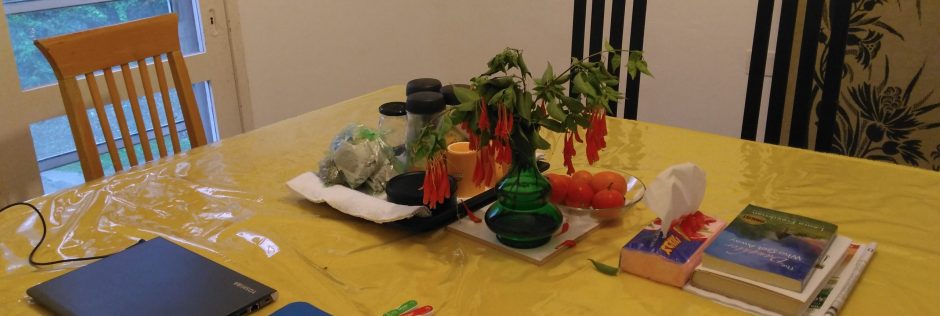 In the late 1920’s Flora got her first teaching job at a Sunday Hebrew school for Jewish children in New York. Since the children were poor the education was almost free, though each child had to pay a nickel per week. The school administration thought that the families wouldn’t value the education if they didn’t pay something for it.
In the late 1920’s Flora got her first teaching job at a Sunday Hebrew school for Jewish children in New York. Since the children were poor the education was almost free, though each child had to pay a nickel per week. The school administration thought that the families wouldn’t value the education if they didn’t pay something for it.
In Flora’s class there was one little girl who answered every question. Her hand went up before anyone else’s and she always talked for a long time, monopolizing the class. One day Flora solved this problem by not looking at this pupil. Instead, she looked in the other direction and waited until someone else’s hand finally went up. This worked beautifully and many other children had a chance to answer questions that day. At the end of the session, the girl she’d been ignoring came up to talk to her. “I didn’t get my nickel’s worth today,” the girl complained to Flora.
Being a teacher didn’t get easier, even later on when Flora was training teachers at Hunter College. These students were already teaching but they needed to upgrade their credentials. Many of them also had families at home and they were tired all the time. “Why should we have to do homework?” they complained. They felt they had already paid their dues.
Among all the complaints, there was also appreciation. There were students who wrote poems for Flora and became lifelong friends, and there were students who collaborated with her on projects. Together they explored using free-verse poetry, audio-visual material—anything to stem the flow of complaints about school being dull or irrelevant. Yet part of becoming educated was learning how to complain, and the students’ resentments prompted many innovations.
Flora was tolerant about the complaints because she knew that she herself had received a good education at an unusually happy institution. Her high school principal had been a poet–not well known, but he’d published several books of poetry. So all the parents flocked to that school and fought to get their kids in. It was a public school and people didn’t pay anything for the education. However, the principal’s published poems convinced both parents and students that they were really getting something.
Copyright © Leora Freedman 2015
***If you have something to say, or a story to share, our comments page is the place to leave it!
 Copyright secured by Digiprove © 2015 Leora Freedman
Copyright secured by Digiprove © 2015 Leora Freedman 
